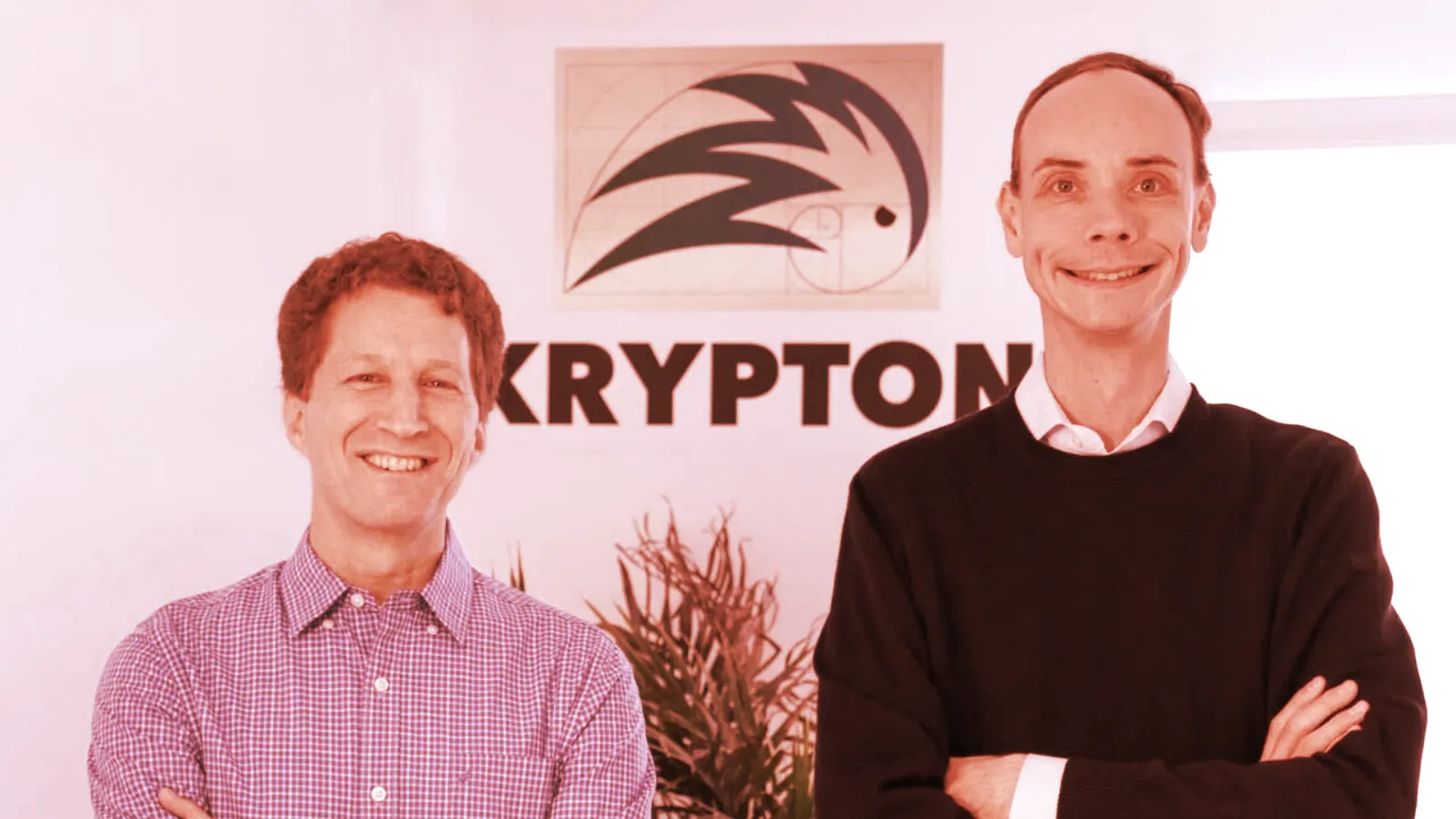Krypton, a new decentralized exchange—which shares a name similar to that of the home planet of a certain "Man of Steel"—announced today a seed round raise of $7 million in investment led by venture capital company Framework Ventures.
Other investors joining in the seven-figure raise are Samsung Next, HashKey Capital, Finality Capital Partners, Foresight Ventures, GSR, and MEXC.
A decentralized exchange or DEX is a platform where people can conduct peer-to-peer cryptocurrency trades. A decentralized exchange uses smart contracts to facilitate trading between individuals but never takes control of their funds.
Since 2020, Framework Ventures has focused heavily on DeFi investments. Earlier this month, the San Francisco-based firm led a $24 million investment round for DeFi bounty platform Immunefi.
"We see Krypton as a platform for an entirely new format of crypto trading that could reach new institutional and retail user demographics," said Framework Ventures co-founder Michael Anderson in an email announcement. Anderson also said that for DeFi to mature, best execution needs to be a priority, and Framework believes that Krypton's solution will play a major role.
Alhough Framework is bullish on DeFi, the firm's co-founder is wary of potential government regulation. During Mainnet 2022 in New York City, Anderson spoke with Decrypt to discuss the firm's investment strategy during the bear market and aggressive moves by regulators.
"I've never seen a more tough regulatory environment than we're seeing for Web3 and crypto," Anderson said. "But frankly, I think what this is also driving is the need for DeFi and crypto at large to become more permissioned—it needs to be more KYC [know your customer]."
Anderson believes the lack of financial institutions investing in the space is holding the industry back because institutions can't transact in permissionless operations—they must know who their counterparties are.
"I think we're going to start to see a lot more of a new DeFi emerge that will look more like FinTech, it'll look more like financial services, but it'll be built on-chain," Anderson said. "It'll have institutions involved, the existing will continue to grow and proliferate as well. But I think we're gonna see a new DeFi because of this."
Decentralized finance products come in various flavors, from decentralized exchanges like Uniswap to yield farming and loan providers.
However, decentralized exchanges typically do not require users to enter personal information to use the platform for know your customer (KYC) purposes, making them a popular option for privacy-minded individuals and a target for regulators looking to curb money laundering. Institutions may be reluctant to enter the market without these precautions.
"DeFi's conceptual goals are built around ideals like being permissionless, trustlessness, and most importantly, being decentralized," Krypton co-founder, Nathan Moore, told Decrypt in an interview. "There should be no gatekeeper—if there's a problem with one node, the next node will allow access."
To set itself apart from existing decentralized exchanges, Krypton claims to use a novel approach to the conventional order book concept, using a continuous batch auction for price discovery.
"This is our secret sauce," Moore said. "Instead of just saying ‘I want to buy token X for $Y,’ you also specify a trading speed, a rate at which you want the trade to happen,” Moore explained. “Then a market maker takes the other side, and instead of the transfer happening instantaneously, it gets spread out across time."
In other words, he says, using trading velocity to exchange value, which he says is a fancy way of saying "trade urgency."
Krypton says this reduces slippage and protects against miner extractable value (MEV), or maximal extractable value, and loss.
Moore says the $7 million will be used to build the Krypton engineering team, research, community, and launch the Krypton exchange in Q1 2023.
"All our code will be audited and released open source along with that, so we need that extra engineering talent to make it all happen on schedule," Moore said.

